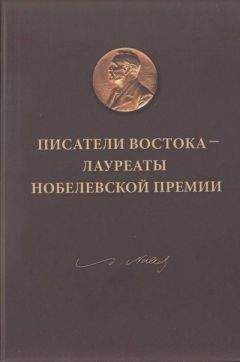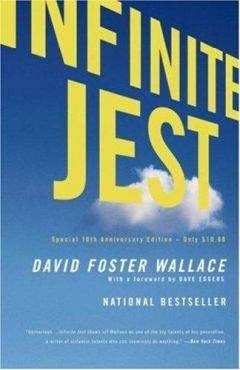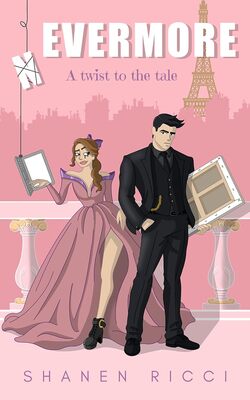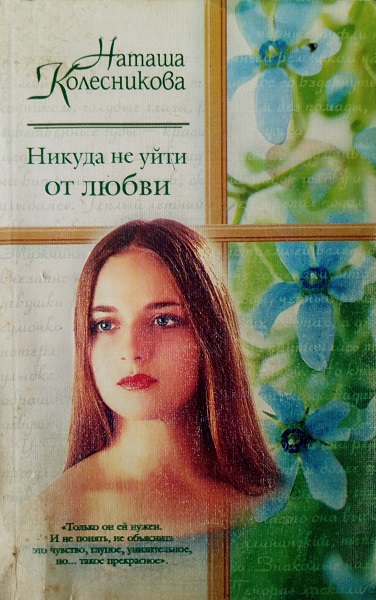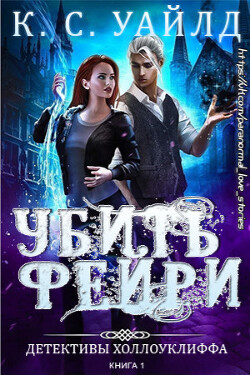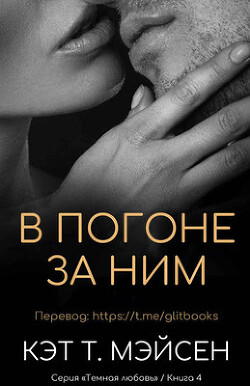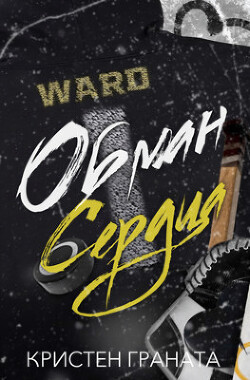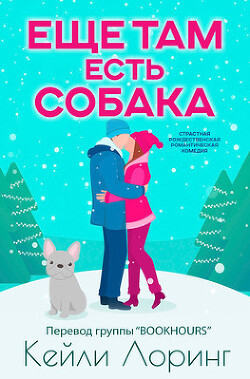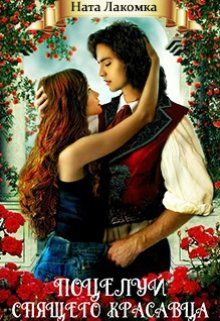Илья Франк - Английский язык с Э. Хемингуэем. Снега Килиманджар

Помощь проекту
Английский язык с Э. Хемингуэем. Снега Килиманджар читать книгу онлайн
The other way was to climb steeply up to the edge of the woods (другой путь — /это/ вскарабкаться по круче: «круто вверх» до края леса) and then go across the top of the hills through the pine woods (а потом идти сосновым лесом, через горы: «через верх холмов/гор»), and then out to the edge of a meadow (и так /выходишь/ к лугу: «к краю луга») and down across this meadow to the bridge (и этим лугом вниз до моста). There were birches along the stream (вдоль ручья росли березы) and it was not big, but narrow (он был небольшой, узкий), clear and fast (прозрачный и быстрый), with pools where it had cut under the roots of the birches (с заводями, там, где течение подмыло: «он прорезался под» корни берез; pool — лужа; прудок; заводь; омут). At the Hotel in Triberg the proprietor had a fine season (у хозяина отеля в Триберге выдался прекрасный = удачный сезон). It was very pleasant and we were all great friends (/там/ было очень приятно = хорошо, и мы быстро подружились: «стали все большими друзьями»). The next year came the inflation (на следующий год пришла = началась инфляция) and the money he had made the year before was not enough to buy supplies to open the hotel (и денег, которые он заработал в прошлом году, не хватило /даже/ на покупку продовольствия к открытию отеля: «чтобы открыть отель»; supplies — припасы; продовольствие, провиант; to supply — снабжать; поставлять, доставлять; питать) and he hanged himself (и он повесился).
trout [traVt], climb [klaIm], meadow ['medqV], proprietor [prq'praIqtq], supplies [sq'plaIz]
In the Black Forest after the war, we rented a trout stream and there were two ways to walk to it. One was down the valley from Triberg and around the valley road in the shade of the trees that bordered the white road, and then up a side road that went up through the hills past many small farms, with the big Schwarzwald houses, until that road crossed the stream. That was where our fishing began.
The other way was to climb steeply up to the edge of the woods and then go across the top of the hills through the pine woods, and then out to the edge of a meadow and down across this meadow to the bridge. There were birches along the stream and it was not big, but narrow, clear and fast, with pools where it had cut under the roots of the birches. At the Hotel in Triberg the proprietor had a fine season. It was very pleasant and we were all great friends. The next year came the inflation and the money he had made the year before was not enough to buy supplies to open the hotel and he hanged himself.
You could dictate that (это можно продиктовать), but you could not dictate the Place Contrescarpe (но нельзя = как продиктовать о площади Контрэскарп) where the flower sellers dyed their flowers in the street (где продавщицы цветов красили свои цветы тут же, на улице) and the dye ran over the paving where the autobus started (и краска стекала по мостовой к автобусной остановке: «/туда/ где отправлялся автобус»; to pave — замащивать, мостить) and the old men and the women, always drunk on wine and bad marc (и о стариках и старухах, вечно пьяных от вина и плохого бренди из виноградных выжимок; marc — выжимки /фруктов/; бренди, получаемое из выжимок винограда); and the children with their noses running in the cold (о детях с мокрыми от холода носами: «носами, из которых течет на холоде»); the smell of dirty sweat and poverty (о запахе грязного пота и нищеты) and drunkenness at the Café des Amateurs (и пьянства в “Café des Amateurs”) and the whores at the Bal Musette[20] they lived above (и о проститутках в "Ball Musette", над которым они жили). The Concierge who entertained the trooper of the Garde Republicaine in her loge (о консьержке, принимавшей у себя в каморке солдата республиканской гвардии /фр./) his horse-hair-plumed helmet on a chair (его каска с султаном из конского волоса /лежала/ на стуле; plume — перо; султан, плюмаж). The locataire across the hall whose husband was a bicycle racer (о жилице /фр./ по ту сторону коридора, муж которой был велосипедным гонщиком) and her joy that morning at the Cremerie (и о ее радости в то утро в молочной /фр./) when she had opened L'Auto (когда она открыла = развернула "L'Auto") and seen where he placed third in Paris-Tours his first big race (и увидела, что он занял третье место в /гонках/ Париж — Тур, его первых серьезных гонках). She had blushed and laughed (она покраснела и засмеялась) and then gone upstairs crying (а потом со слезами: «плача» убежала /к себе/ наверх) with the yellow sporting paper in her hand (с желтой спортивной газетой в руке). The husband of the woman who ran the Bal Musette drove a taxi (муж той женщины, которая содержала "Bal Musette", водил = был шофером такси) and when he, Harry, had to take an early plane (и когда ему, Гарри, надо было лететь утренним: «ранним» самолетом) the husband knocked upon the door to wake him (шофер: «муж» постучался /к нему/ в дверь, чтобы разбудить его) and they each drank a glass of white wine at the zinc of the bar before they started (и перед тем как ехать, они выпили по стакану белого вина у цинковой стойки в баре: «у цинка барной стойки»). He knew his neighbors in that quarter then because they all were poor (он знал тогда всех соседей в том = своем квартале, потому что все они были беднота).
sweat [swet], poverty ['pOvqtI], entertain ["entq'teIn], bicycle ['baIsIkl], neighbor ['neIbq]
You could dictate that, but you could not dictate the Place Contrescarpe where the flower sellers dyed their flowers in the street and the dye ran over the paving where the autobus started and the old men and the women, always drunk on wine and bad marc; and the children with their noses running in the cold; the smell of dirty sweat and poverty and drunkenness at the Café des Amateurs and the whores at the Bal Musette they lived above. The Concierge who entertained the trooper of the Garde Republicaine in her loge his horse-hair-plumed helmet on a chair. The locataire across the hall whose husband was a bicycle racer and her joy that morning at the Cremerie when she had opened L'Auto and seen where he placed third in Paris-Tours his first big race. She had blushed and laughed and then gone upstairs crying with the yellow sporting paper in her hand. The husband of the woman who ran the Bal Musette drove a taxi and when he, Harry, had to take an early plane the husband knocked upon the door to wake him and they each drank a glass of white wine at the zinc of the bar before they started. He knew his neighbors in that quarter then because they all were poor.
Around that Place there were two kinds (вокруг той площади жили два рода = две категории /людей/); the drunkards and the sportifs (пьяницы и спортсмены /фр./). The drunkards killed their poverty that way (пьяницы глушили свою нищету пьянством: «тем = своим способом»); the sportifs took it out in exercise (спортсмены изводили ее тренировками; to take out — вынимать; удалять; разрушать, уничтожать). They were the descendants of the Communards (они были потомками коммунаров) and it was no struggle for them to know their politics (и для них не составляло труда выработать свои политические убеждения; struggle — борьба; напряжение, усилие; politics — политика; политические убеждения). They knew who had shot their fathers (они знали, кто расстрелял их отцов), their relatives, their brothers, and their friends (их родственников, их братьев и их друзей) when the Versailles troops came in and took the town after the Commune (когда версальские войска вошли и заняли город после Коммуны) and executed any one they could catch with calloused hands (и казнили любого, кого /только/ могли поймать, если у него были мозолистые руки; calloused — загрубелый, затвердевший; мозолистый), or who wore a cap (или кепка на голове: «кто носил кепку»), or carried any other sign he was a working man (или какой-то другой признак того, что он рабочий человек: «носил какой-нибудь другой знак…»). And in that poverty, and in that quarter across the street from a Boucherie Chevaline[21] and a wine co-operative (и среди этой нищеты и в этом квартале, на другой стороне улицы от "Boucherie Chevaline" и винного кооператива) he had written the start of all he was to do (он написал начало = то, что стало началом всего, что ему предстояло сделать).
drunkard ['drANkqd], descendant [dI'sendqnt], Communard ['kOmjVnRd], relative ['relqtIv], calloused ['kxlqst]
Around that Place there were two kinds; the drunkards and the sportifs The drunkards killed their poverty that way; the sportifs took it out in exercise. They were the descendants of the Communards and it was no struggle for them to know their politics. They knew who had shot their fathers, their relatives, their brothers, and their friends when the Versailles troops came in and took the town after the Commune and executed any one they could catch with calloused hands, or who wore a cap, or carried any other sign he was a working man. And in that poverty, and in that quarter across the street from a Boucherie Chevaline and a wine co-operative he had written the start of all he was to do.
There never was another part of Paris that he loved like that (никогда не было другой части Парижа, какую бы он любил так же), the sprawling trees (развесистые деревья; to sprawl — расползаться во все стороны, простираться, раскидываться), the old white plastered houses painted brown below (старые белые оштукатуренные дома, покрашенные внизу коричневой краской), the long green of the autobus in that round square (длинная зеленая туша: «зелень» автобуса на круглой площади), the purple flower dye upon the paving (пурпурная/лиловая краска от /бумажных/ цветов на мостовой), the sudden drop down the hill of the rue Cardinal Lemoine to the River (неожиданно крутой спуск к реке, на улицу /фр./ Кардинала Лемуана; drop — капля; падение; спуск; hill — холм, небольшая гора; возвышенность; склон), and the other way the narrow crowded world of the rue Mouffetard (а по другую сторону — узкий, тесный мирок улицы Муфтар; crowded — переполненный, тесный; crowd — толпа, скопление людей; to crowd — давить, толкать). The street that ran up toward the Pantheon (улица, которая поднималась к Пантеону) and the other that he always took with the bicycle (и другая, по которой он всегда ездил на велосипеде), the only asphalted street in all that quarter (единственная асфальтированная улица во всем районе), smooth under the tires (гладкая под шинами), with the high narrow houses (с высокими, узкими домами) and the cheap tall hotel where Paul Verlaine had died (и дешевой высокой гостиницей, где умер Поль Верлен). There were only two rooms in the apartments where they lived (в квартире, в которой они жили, было только две комнаты) and he had a room on the top floor of that hotel (и он снимал комнату в верхнем этаже этой гостиницы) that cost him sixty francs a month (которая стоила = стоившую ему шестьдесят франков в месяц) where he did his writing (где он работал; writing — писание /процесс/), and from it he could see the roofs (и из нее = оттуда ему были видны крыши) and chimney pots (и трубы; chimney — дымоход; pot — горшок, котелок, кастрюля; chimney pot — труба, которой заканчивается дымоход) and all the hills of Paris (и все холмы Парижа).
